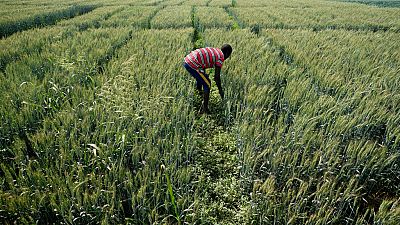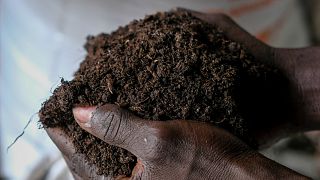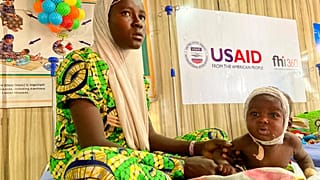Nigeria
Nigeria's approval of genetically modified crops has sparked outrage online over concerns that food supply will be over-reliant on Western agritech companies.
Food containing GMOs has been available in Nigeria since 2019, yet the debate over the controversial agricultural technology reignited online this week after medical influencer, Chinonso Egemba, posted a video on Thursday boasting the benefits of GMOs.
The video, which has garnered over 5.9 million views on X, sparked outrage after photos reemerged of Egemba's 2023 meeting with U.S billionaire Bill Gates. Gates has invested heavily in GMO technology across Africa, including $2.8 billion in Nigerian health and food sectors.
Viewers expressed fears over the role of foreign actors in proliferating GMOs in Nigeria, with one commenter @Jenslaw claiming that "GMO is simply a 21st century slavery scheme to recolonise Africa by controlling African population through what they cultivate and eat".
The magnitude of the backslash prompted Nigeria's GMO regulator to respond on Thursday,
"GMOs are trending, and we hear your concerns! NBMA ensures all approved GMOs in Nigeria are safe for you & our ecosystem. Our strict regulations align with WHO & Codex standards", the National Biosafety Management Agency stated on Facebook.
GMOs as a remedy for Nigeria's hunger crisis
The debate over GMOs has intensified amid fears over growing food insecurity in Nigeria. On Wednesday, the UN World Food Program said that the country was facing "an unprecedented hunger crisis," with nearly 31 million people in Nigeria acutely in need of food.
Proponents have hailed GMOs as a solution to food insecurity amid concerns for global warming's impact on farm yields. GMO crops are genetically modified to possess beneficial traits such as tolerance against droughts or insect attacks
Fears over 'neo-colonial' practices
Yet, critics argue that the dominance of Western companies in the GMO space risks making Nigeria overly reliant on foreign actors for its food supply. Strong IP rights for genetically modified seeds mean that small farmers could risk lawsuits if they replant their GMO crops instead of purchasing new seeds from abroad each year.
"GMOs aggravate food insecurity and threaten food and seed sovereignty. They do so by holding farmers in debt cycles that reduce their ability to produce more food for consumption", the environmental organisation, Greenpeace stated, calling GMO technology 'neo-colonial'.
Fears of Western interference increased after a joint investigation published in September by Lighthouse Reports revealed that a U.S government-funded PR firm was targeting GMO-critical voices in Africa and Asia.
Beyond Nigeria
South Africa is leading the charge for GMOs in Africa with the most amount of approved GMO crops under cultivation as several other countries, including Kenya and Ghana has begun trials of the technology. Algeria, Madagascar, and Zimbabwe have banned GMO cultivation and imports citing biodiversity risks.
Since 2024, Nigeria has had two GMO crops - maize and cowpea - approved for sale with 33 more crops approved for trial.














Go to video
Streamer IShowSpeed calls Ghana “Home” on Africa tour
Go to video
Nigeria: Soldiers face trial for alleged Tinubu coup plan
Go to video
Egypt to restrict children’s social media use
01:32
US, Nigeria diverge in details over strikes on militants
Go to video
South African court clears sale of Nelson Mandela artefacts
01:00
Fifa pass launches to help fans travel to US for 2026 World Cup